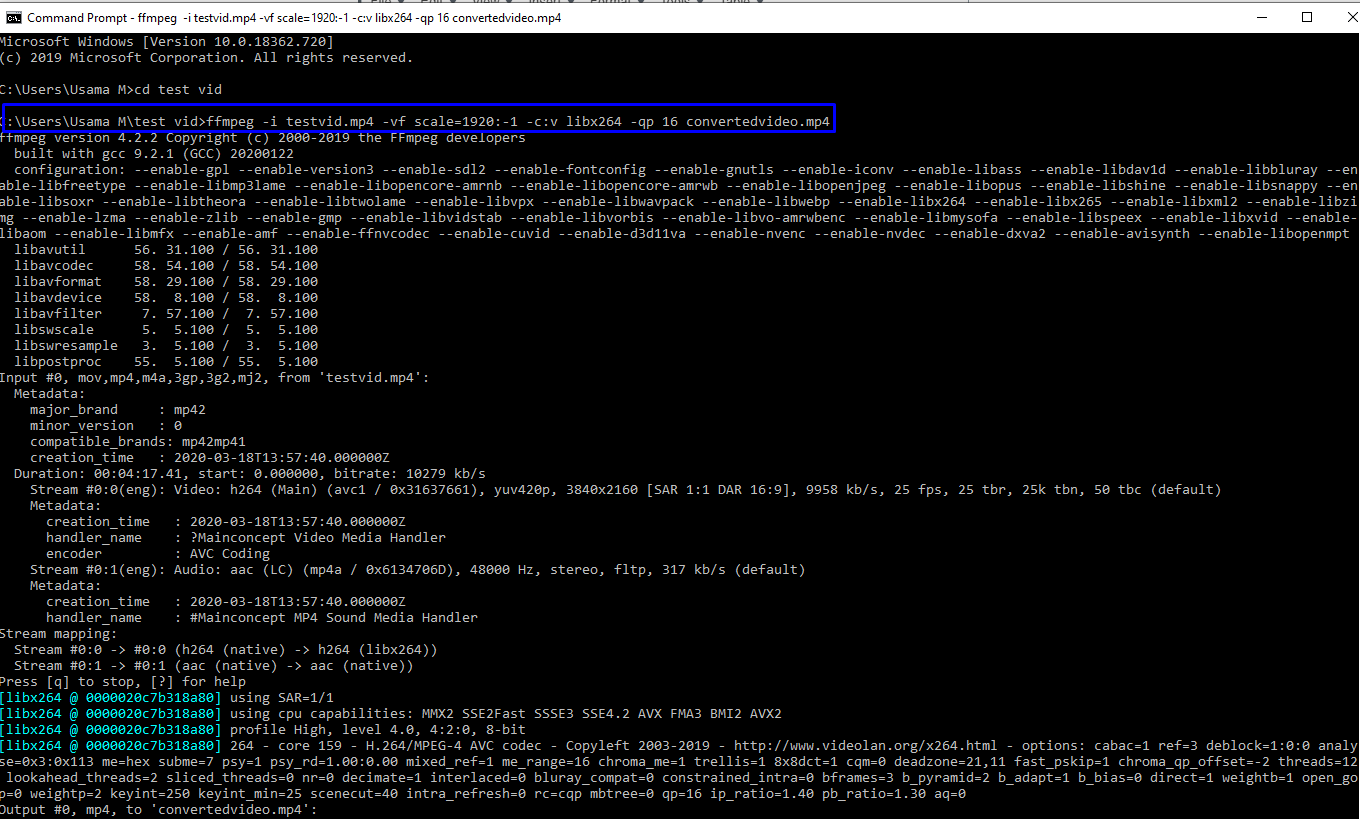

So it seems to work when there is no filter, but not when there is one.Īs an aside: Is there any way to more easily just have "options", where my string of options between input and output are one whole thing? The documentation hasn't been very good in terms of mapping things like scale, where I would usually do things like scale=-1:720:flags=lanczos, but the only options are things like hd720.


When I remove the scale filter, the audio bitrate works and there is a transcoded audio stream in the output file. As it's usually less than a second, the default of 10 is a reasonable default. It can read from an arbitrary number of input files (regular files, pipes, network streams, grabbing devices, etc.) and write into arbitrary number of output files. ffmpy resembles the command line approach FFmpeg uses. This doesn't limit the total conversion time, just the amount of time Converter will wait for each update from ffmpeg. It compiles FFmpeg command line from provided arguments and their respective options and excutes it using Python’s subprocess. When I remove the audio_bitrate flag in the option (or same with b:a instead of audio_bitrate), it works fine without an error. The optional timeout argument specifies how long should the operation be blocked in case ffmpeg gets stuck and doesn't report back. output( stream, "test-output.mp4", ** outputArguments)


 0 kommentar(er)
0 kommentar(er)
